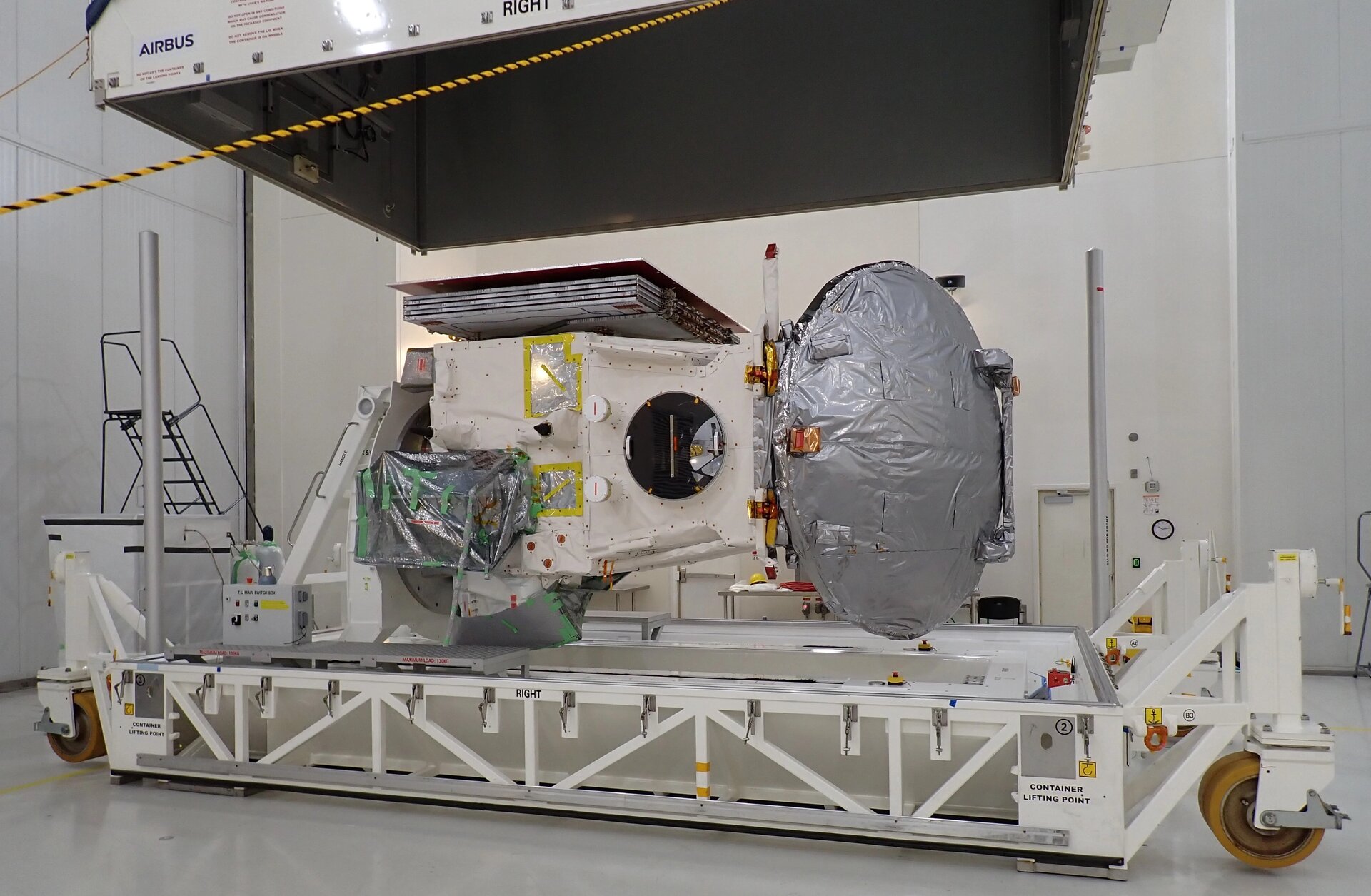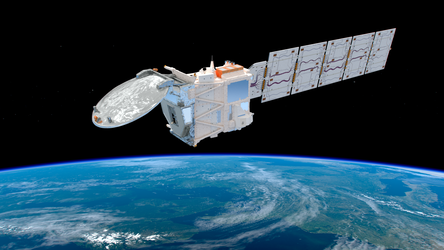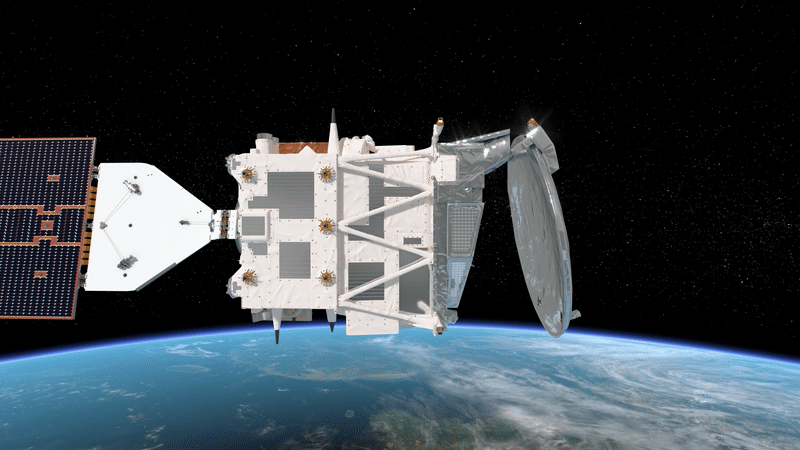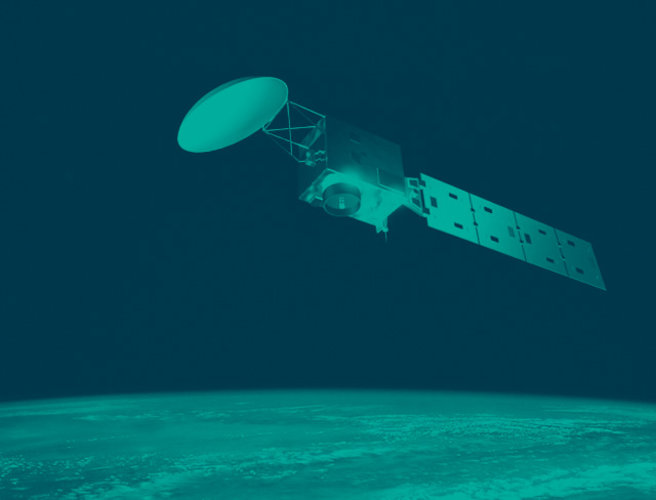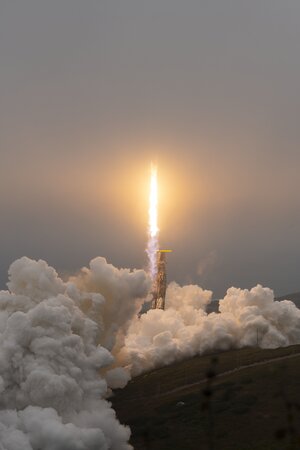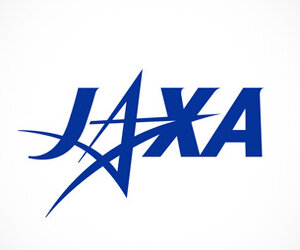EarthCARE out of the box
After being packed up in Germany, a long voyage to the US and then a month in storage, ESA’s EarthCARE satellite has been carefully lifted out of its transport container so that the team at the launch site can start getting it ready for its big day in May.
With the climate crisis increasingly tightening its grip, the Earth Cloud Aerosol and Radiation Explorer, or EarthCARE for short, carries a set of four state-of-the-art instruments that will work together to provide a holistic view of complex interplay between clouds, aerosols, incoming solar radiation and outgoing radiation to yield new insight into Earth’s radiation balance.
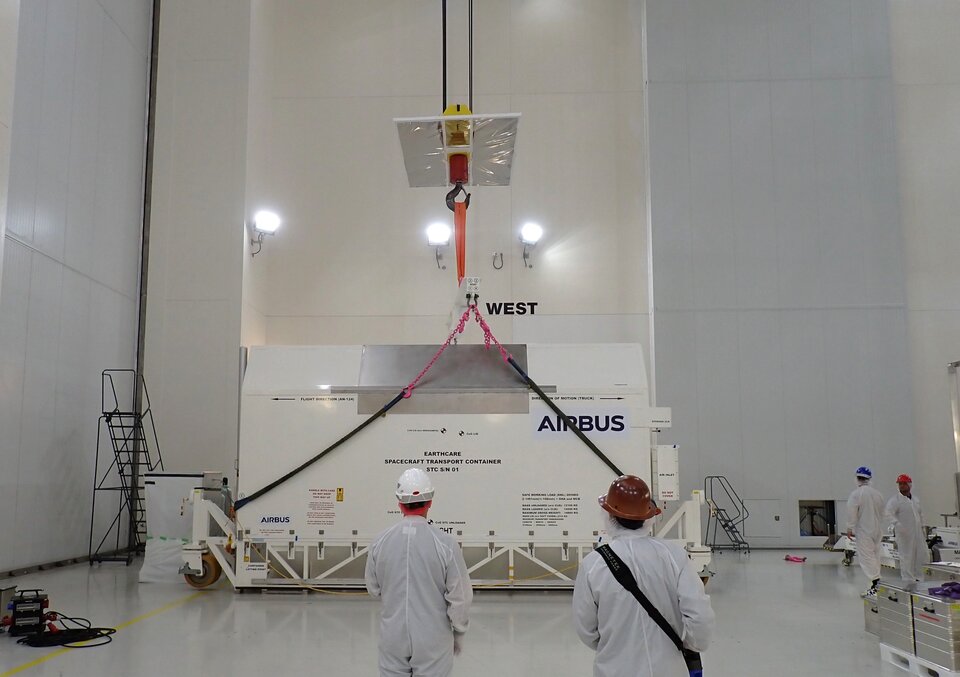
The EarthCARE satellite spent over a month cocooned in its transport container, during which the container’s temperature and pressure were monitored carefully throughout.
Importantly, the team also purged nitrogen from the container to keep the satellite’s instruments in perfect condition.
A NASA building near the Space X launch site in Vandenberg, California, was home for EarthCARE during the storage period. Then, a few days ago, the satellite container was taken by truck to a different facility, called the Astrotech building, where it was first left to acclimatise to its new surroundings.
But now, EarthCARE has now been carefully removed from the container, and the team has been reunited with their precious satellite.

ESA’s EarthCARE launch campaign manager, Bill Simpson, said, “EarthCARE’s journey to California and subsequent few weeks of storage all went really well, but we were anxious to actually lay eyes on the satellite again.
“So, when we were able to open the container and hoist EarthCARE out, we were all very excited. This hoisting manoeuvre is a very careful one – our satellite is over 2000 kg of very sensitive equipment.
“I’m extremely happy to report that EarthCARE looks fit and well, but we obviously have to run a series of tests to make absolutely sure that it survived the journey ok.”
One of the first tasks on the ‘launch campaign’ to-do list was to give the satellite some energy by charging up its batteries.

In parallel, the team at ESA’s Operations Centre in Germany is running a series of all-important simulations – these simulate what they will have to do during liftoff and the ‘early orbit’ phase of the mission.
ESA’s EarthCARE Project Manager, Dirk Bernaerts, noted, “This really does mark the start of the launch campaign – an important milestone that signals the start of an intense period that will last at least six weeks leading to liftoff.”
“The team has a lot of work to do, the satellite is not only big, but extremely complex so everything has to be carefully checked and prepared before it is encapsulated within its Falcon 9 rocket fairing prior to launch towards the end of May.
Follow the EarthCARE launch campaign blog for more updates.















 Germany
Germany
 Austria
Austria
 Belgium
Belgium
 Denmark
Denmark
 Spain
Spain
 Estonia
Estonia
 Finland
Finland
 France
France
 Greece
Greece
 Hungary
Hungary
 Ireland
Ireland
 Italy
Italy
 Luxembourg
Luxembourg
 Norway
Norway
 The Netherlands
The Netherlands
 Poland
Poland
 Portugal
Portugal
 Czechia
Czechia
 Romania
Romania
 United Kingdom
United Kingdom
 Slovenia
Slovenia
 Sweden
Sweden
 Switzerland
Switzerland

























